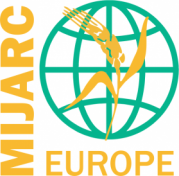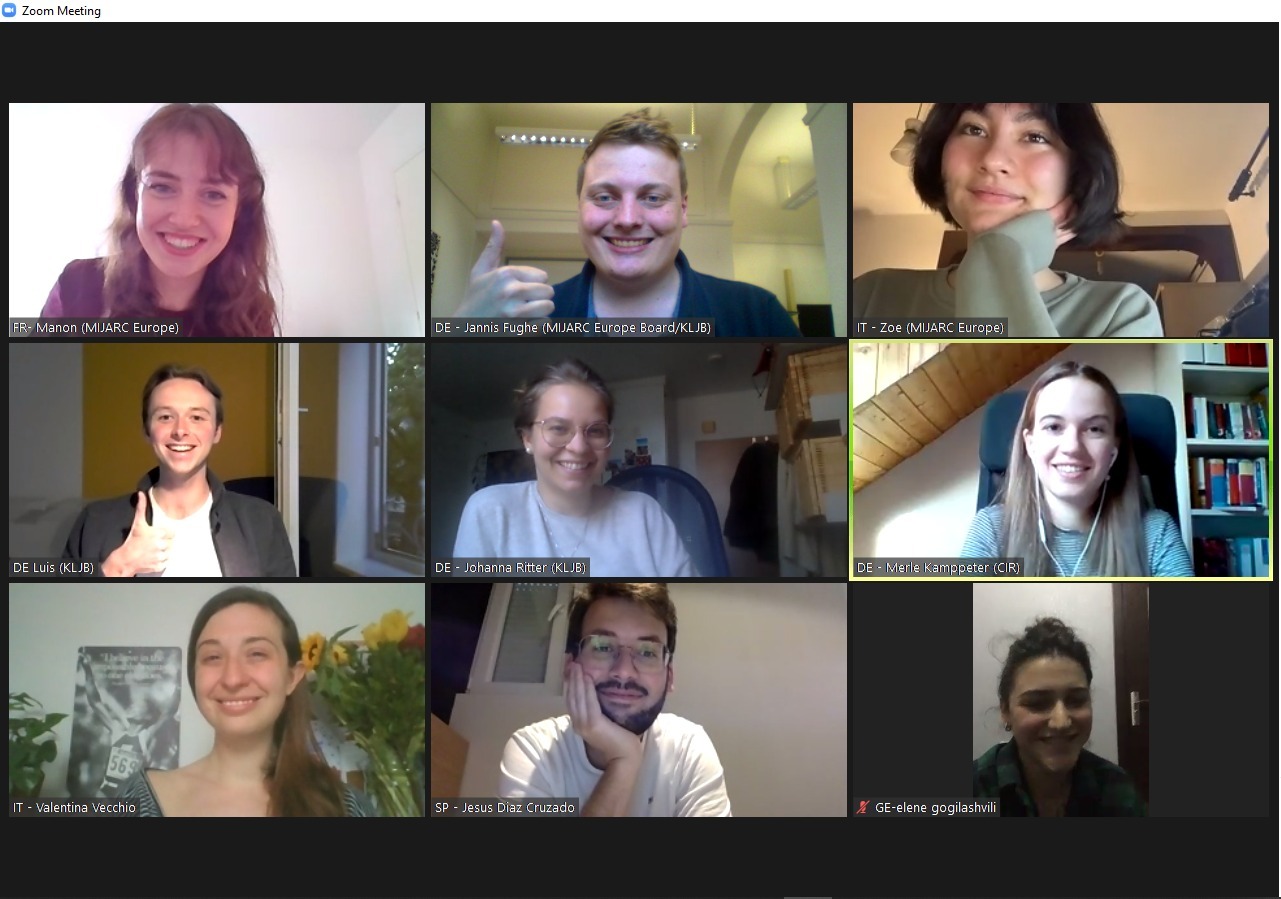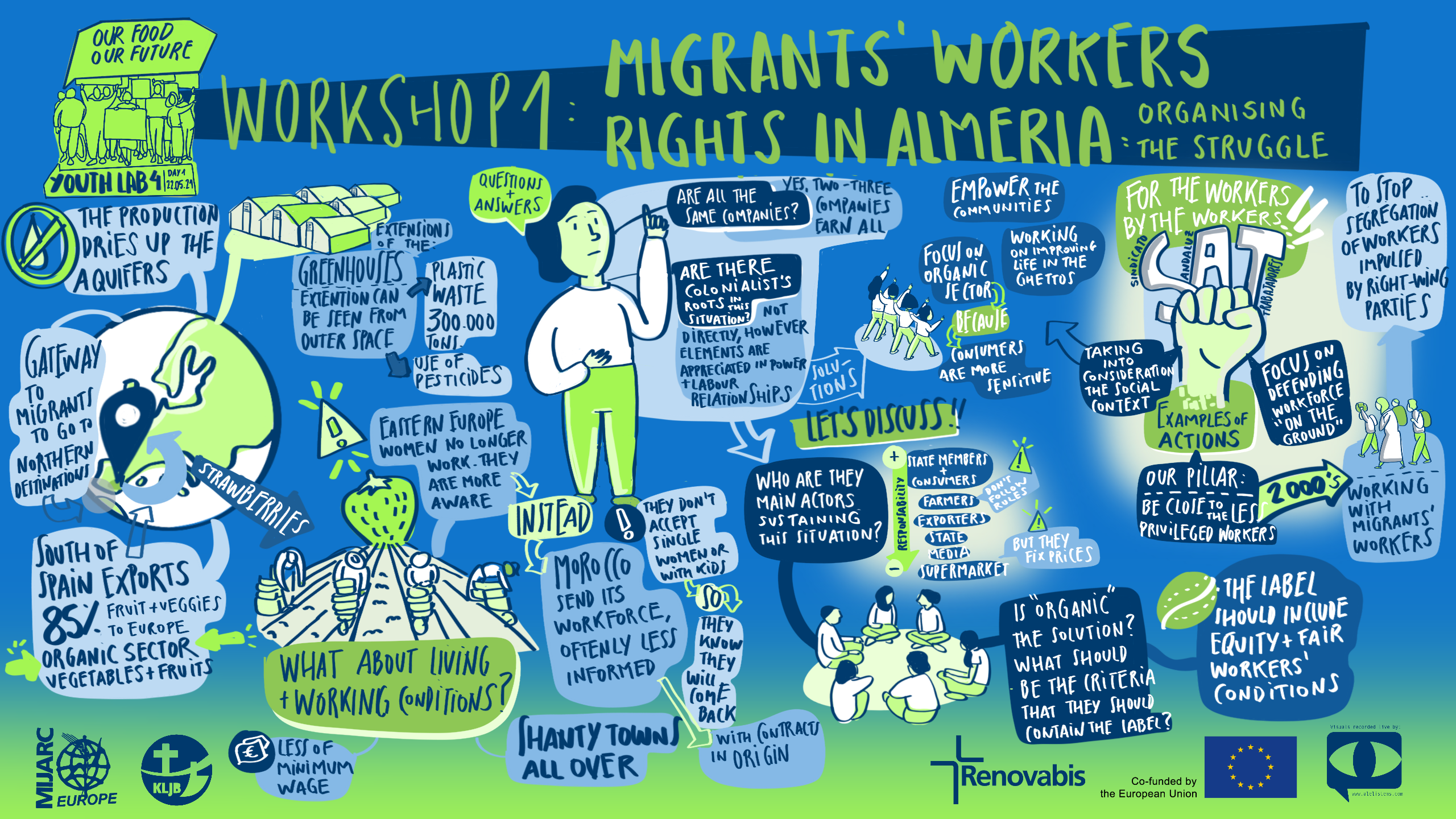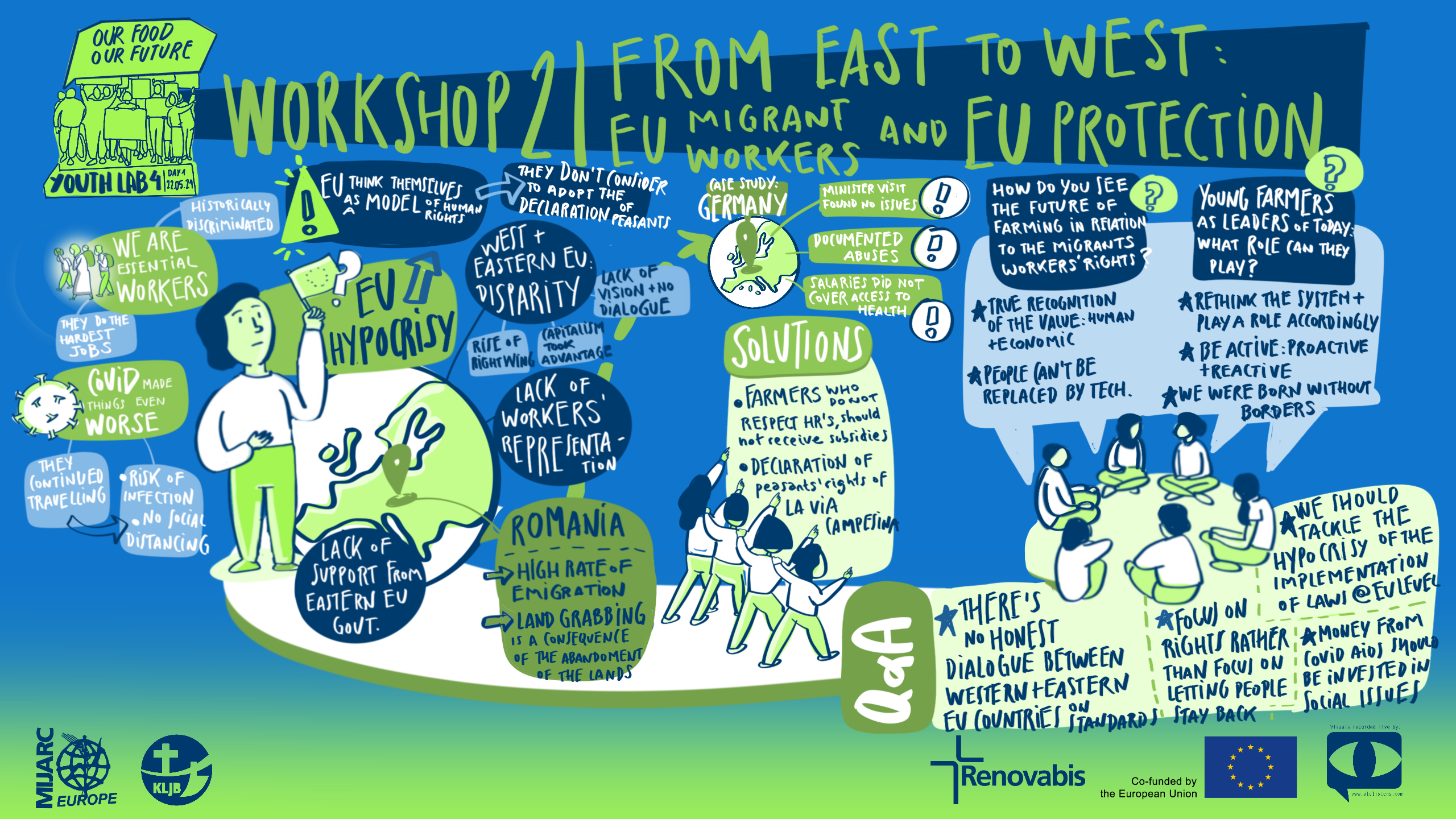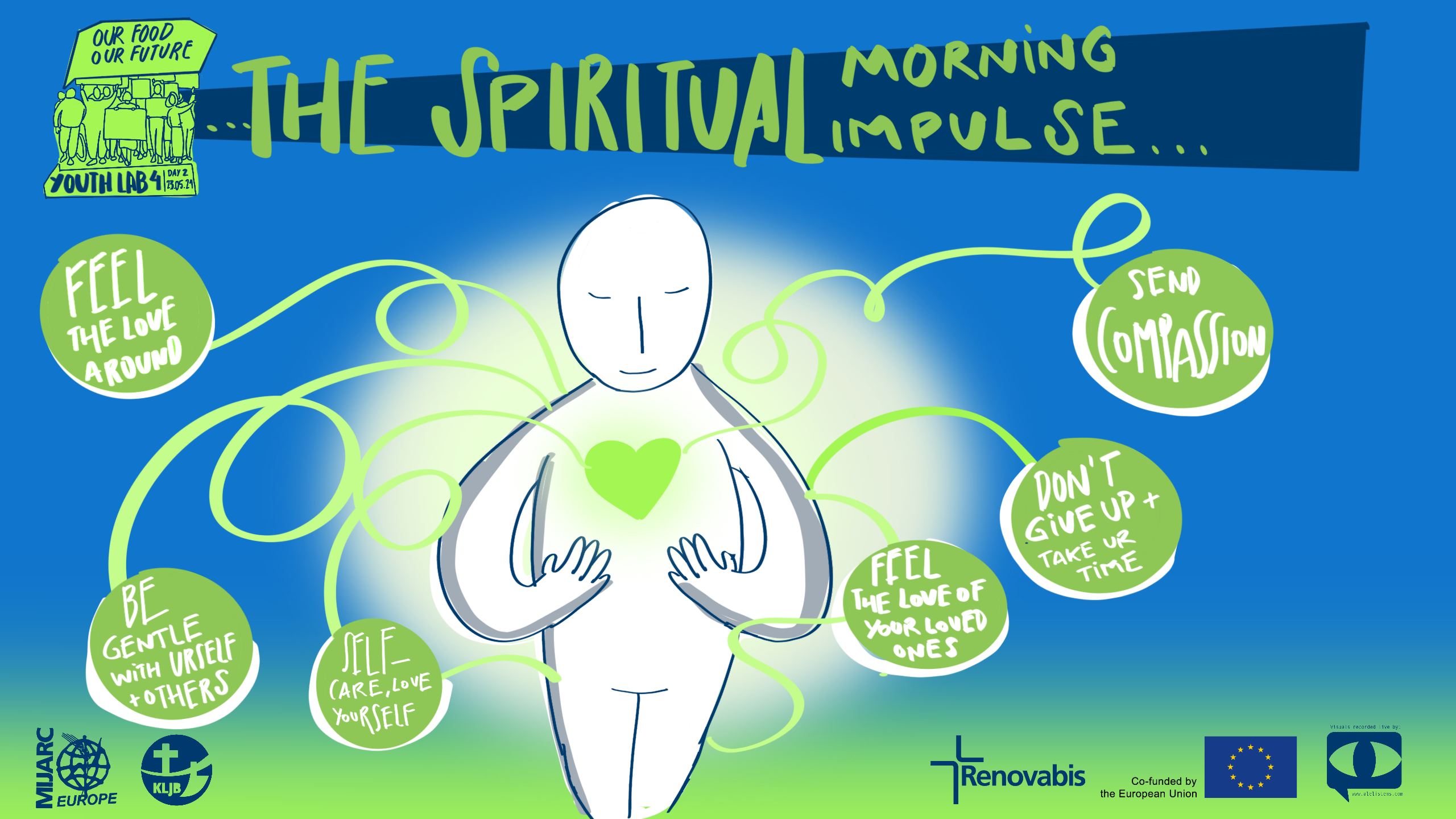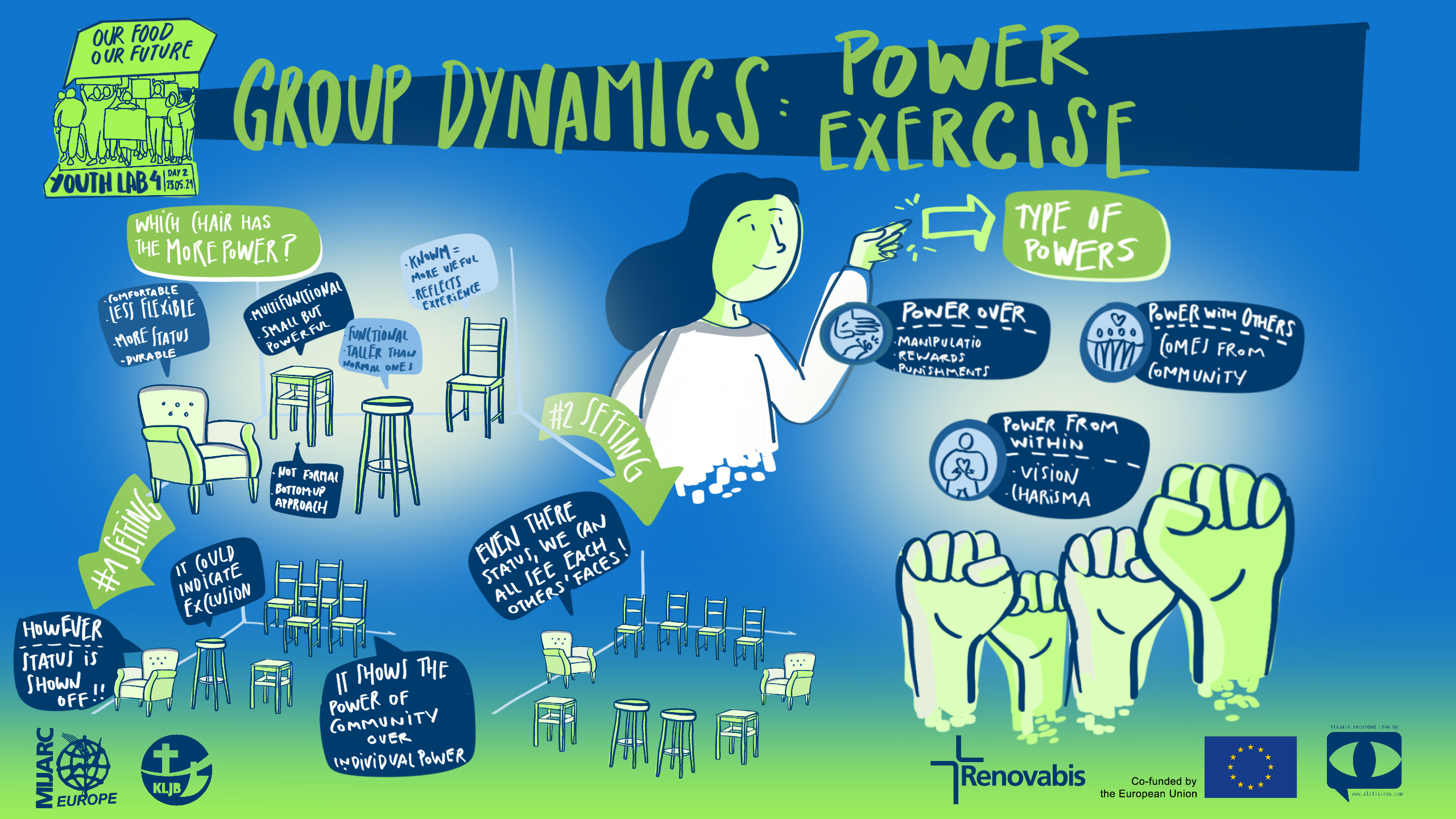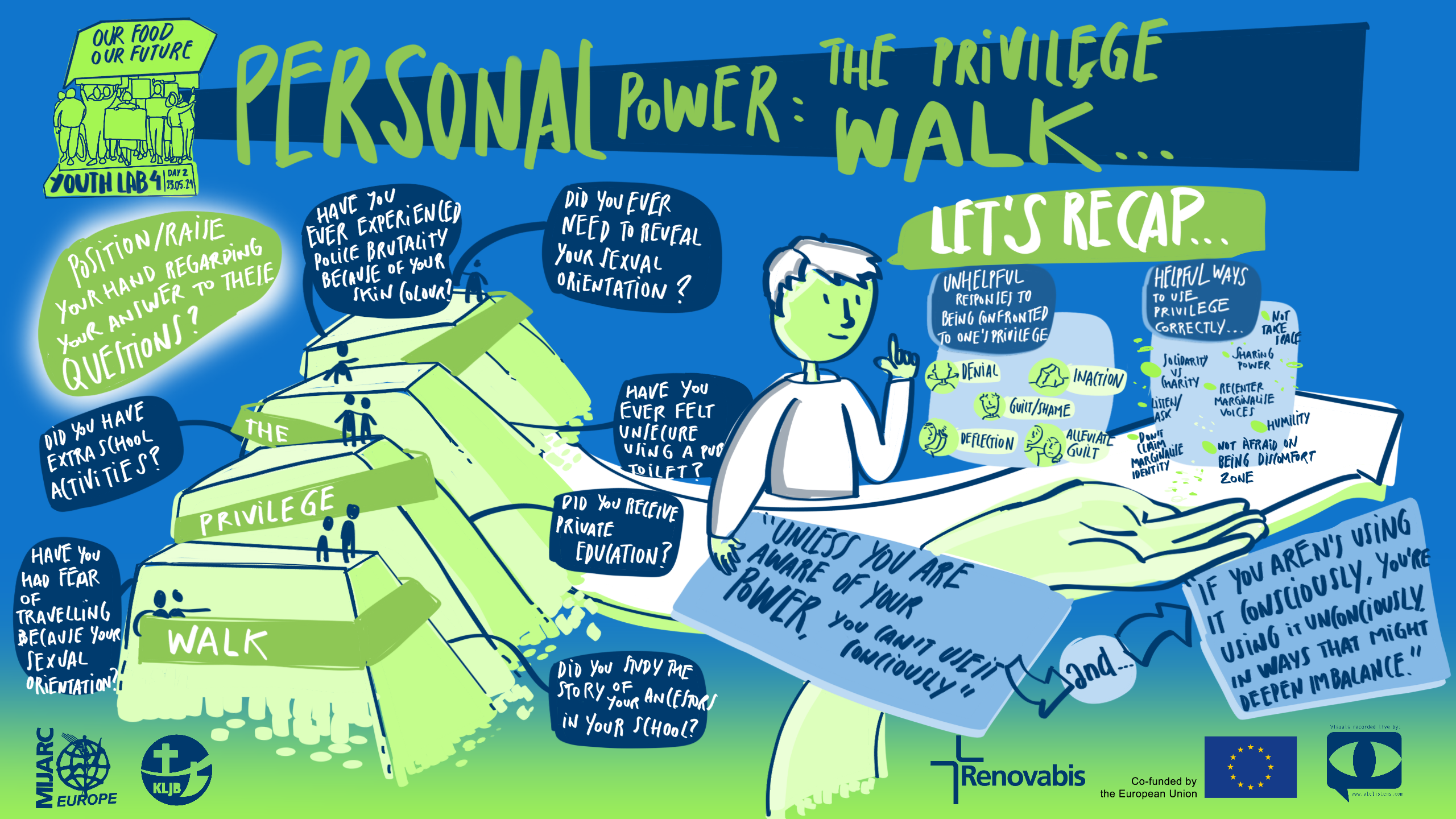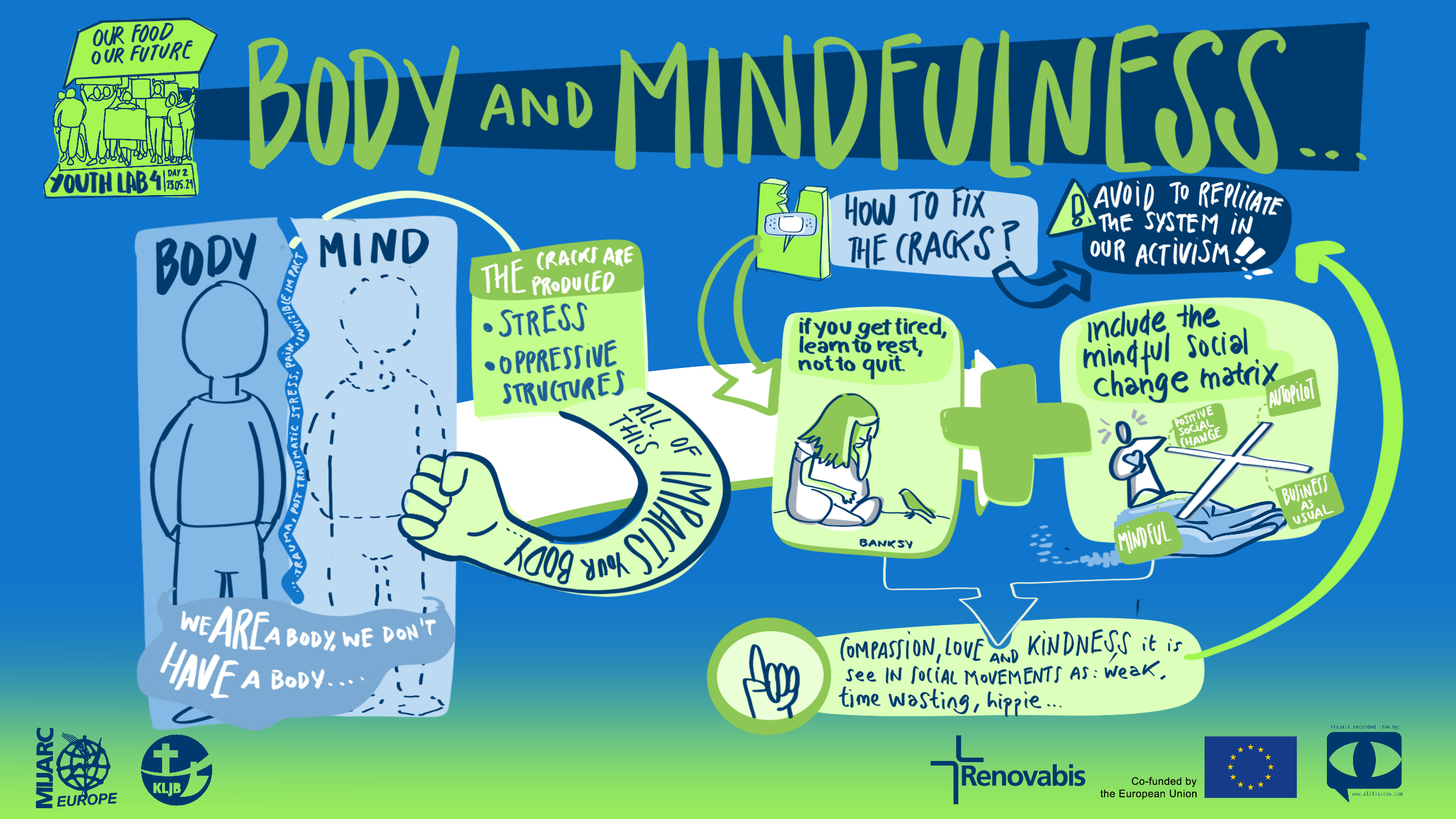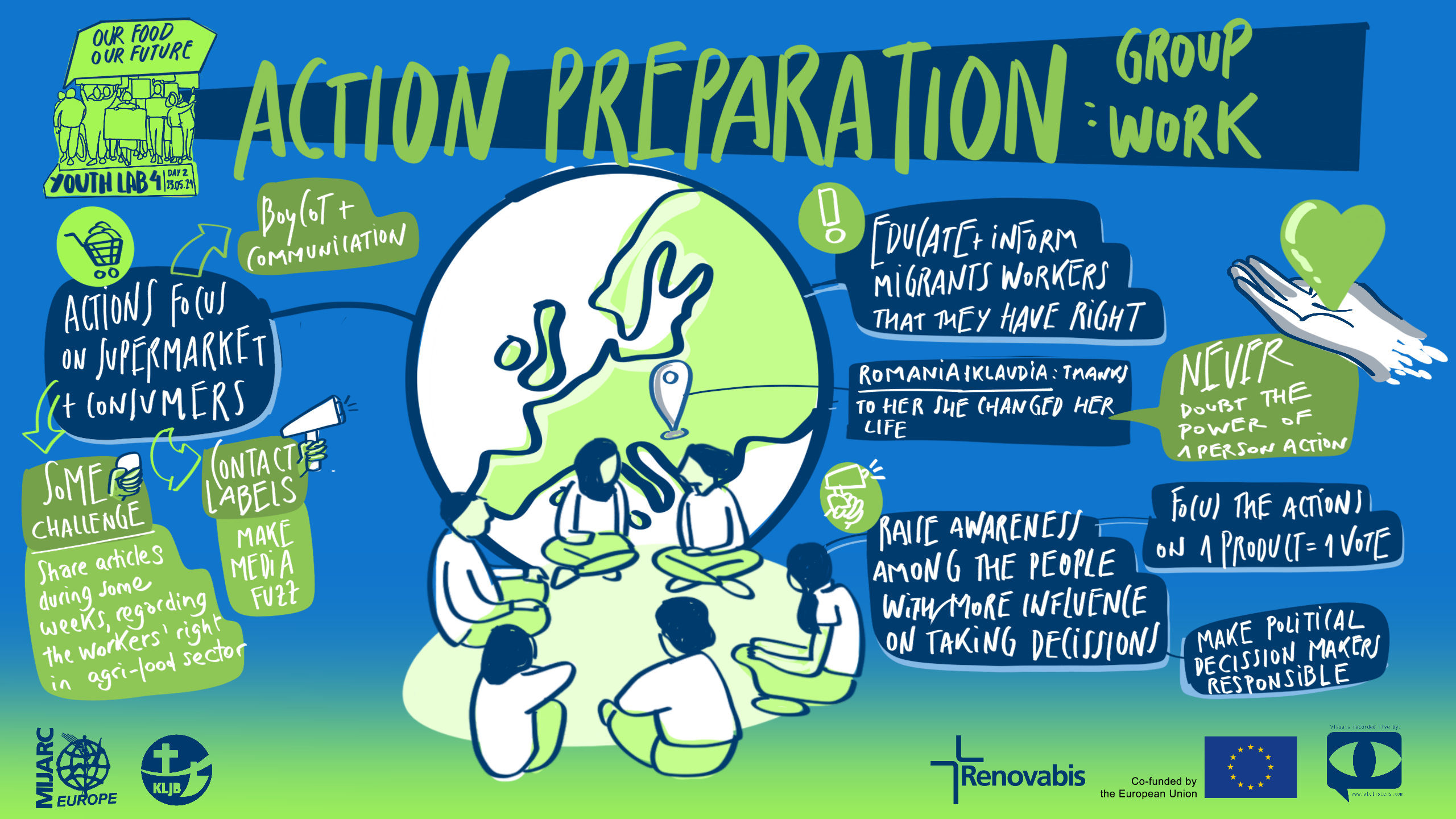The EU HREDD : Why MIJARC Europe stands for a stronger proposal
In February 2022, the European Commission released its proposal on a Human Rights and Environmental Due Diligence (HREDD) directive on the EU companies even outside of Europe.
What is due diligence?
In the system we currently live in, most of the products we use every day, from food to textile and technology, come from all over the world. Since the supply chains have been delocalised and globalised, the way we consume in Europe has therefore an impact on other continents, such as South East Asia textile workers, African and South American farmers and African miners.
Due diligence is a legal concept used to talk about the responsibility of companies abroad, mainly on environment, climate and human rights issues. It concretely means that during the phase of examination of a company by another: When a big european corporation wants to develop a product, they usually use a subcontractor company in countries where the prices are lower. Usually, the due diligence asks the company to make some legal control of the structures they work with beforehand. The new Due Diligence on Human Rights and Environment will ask the verifications to be done on these topics and if the parent company decides to work with subcontractors that do not respect it, then it will be the responsibility of the Big European company, and not anymore the one on the ground only: all the steps of supply chain should be held responsible.
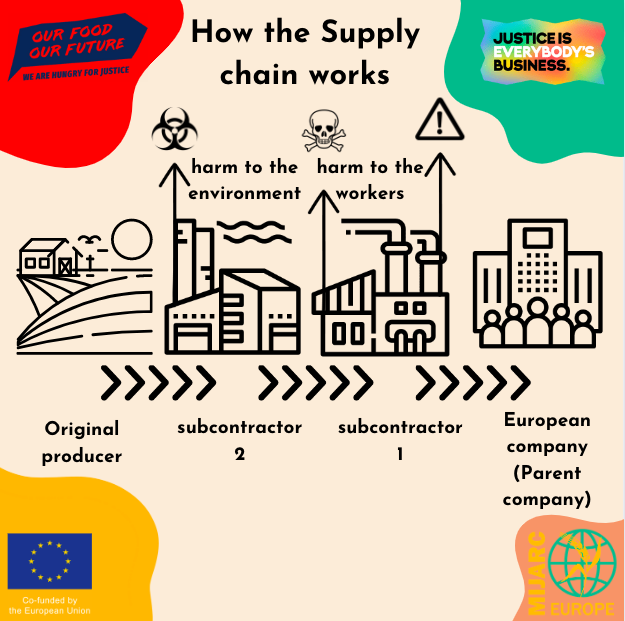
The prevention of the harm done to the environment and humans all across the supply chain is therefore a very new and very important addition to due diligence, helping to make big companies accountable. The lack of due diligence laws can lead to violations of human rights and destruction of the environment abroad without the people suffering from it being able to take European companies to court and repair those violations. This Due Diligence proposal is an EU proposal to make the businesses accountable for their harmful practices and also to provide the legal capacity for workers to defend themselves and the environment when needed.
HOW CAN THIS NEW EUROPEAN DIRECTIVE CHANGE THIS?
Today, only France and Germany have binding due diligence laws in the EU. Having a common European framework will provide citizens affected by European companies’ illegal actions with legal means to take them accountable. This type of legislative action can offer solutions for workers that are not protected by their national laws. Its field of application will include companies working abroad, but also to their supply chain, so that the goods and services sold in Europe will no longer rely on the exploitation of humans and the environment abroad.
The current proposal shows positive elements, such as civil liability. However, if the directive is not as far-reaching as our partner human rights and environmental NGOs ask for, it will be too little, too late. The end goal is the decolonisation of supply and value chains, where the surplus value is hoarded by Western companies, and the extension of the right to a fair wage to the right to a living income in order to include self-employed smallholder farmers.
WHY DO WE CARE?
As rural youth, we know the price of the food related supply chain and we know that we need to act if we want a fairer and ecological system in which we can all live. The current situation is based on unfair competition.
Due diligence should ban unfair competition that European farmers face regarding companies importing unfair products.Today industrial farmers that work violating human rights and harm the environment have it easier to sell their products cheaper than farmers complying to ecological farming and fair trade.
Due diligence directive should be the first step towards a levelling up on living conditions and dignity of farmers and workers all across the world. The current proposition of the EU remains too weak, and it is weakened more and more during the legal process of voting. We therefore incite the European Union to develop a strong and binding due diligence that will truly change the way business is currently going on in the world.
The next step in the process will be at the beginning of december when the Council of the European union will officialise their position, and then, the trilogue will start to renegotiate the HREDD.
We also invite you, as a MIJARC Europe, as a member of the Our Food Our future Consortium, and as a partner of the Justice Is Everybody’s Business’s Campaign, to sign the petition in favour of a stronger Due diligence within the EU : https://justice-business.org/fr/rejoignez-le-mouvement/#petition.
